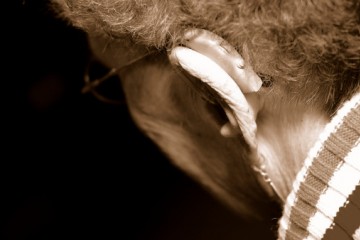The Johns Hopkins Bloomberg School of Public Health today announced the launch of a new research center that will study the effects of hearing loss, particularly among older adults, with the goal of preventing and mitigating the consequences of hearing impairment, including cognitive decline and dementia.
The Cochlear Center for Hearing and Public Health is being established with a $10 million gift from Cochlear Limited, a developer of hearing implants based in Australia.
The center will be led by Frank Lin, an associate professor of Epidemiology and Mental Health at the Bloomberg School and of Otolaryngology-Head and Neck Surgery at Johns Hopkins Medicine.
"We are just now beginning to understand the impact that hearing loss can have on the lives of older adults," Lin says. "Amazingly, there is a dearth of public health research that examines this area and that is geared towards developing solutions and policies needed to mitigate these effects. This center is going to address these gaps."
Today's announcement was made two days before World Hearing Day on March 3, designated by the World Health Organization to raise awareness of hearing loss across the globe. One-third of the world's population age 65 and older is affected by disabling hearing loss, according to WHO, which also estimates that the lack of concerted attention on hearing loss leads to an overall annual cost of $750 billion globally.
"We are committed to bringing critical issues to the fore of public health research and awareness," says Bloomberg School Dean Ellen J. MacKenzie. "We are excited about the contributions the Cochlear Center will make in driving research and policy on the consequences of hearing loss, particularly as the world's population ages."
At the time of its launch, the center's researchers had more than $20 million in NIH funding committed to the study of hearing loss. The center will aim to develop and test interventions that mitigate the effects of hearing loss, and help craft policy and strategies to ensure successful implementation of these interventions at the local and national levels.
Lin's previous research laid the foundation for further inquiry—including studies on the impact that hearing loss in older adults has on dementia, brain health, health care costs, and risk of institutionalization/hospitalization—that directly led in 2017 to the passage of federal legislation in the U.S. authorizing over-the-counter hearing aid sales to consumers.
Posted in Health, Science+Technology
Tagged philanthropy, frank lin, hearing loss









